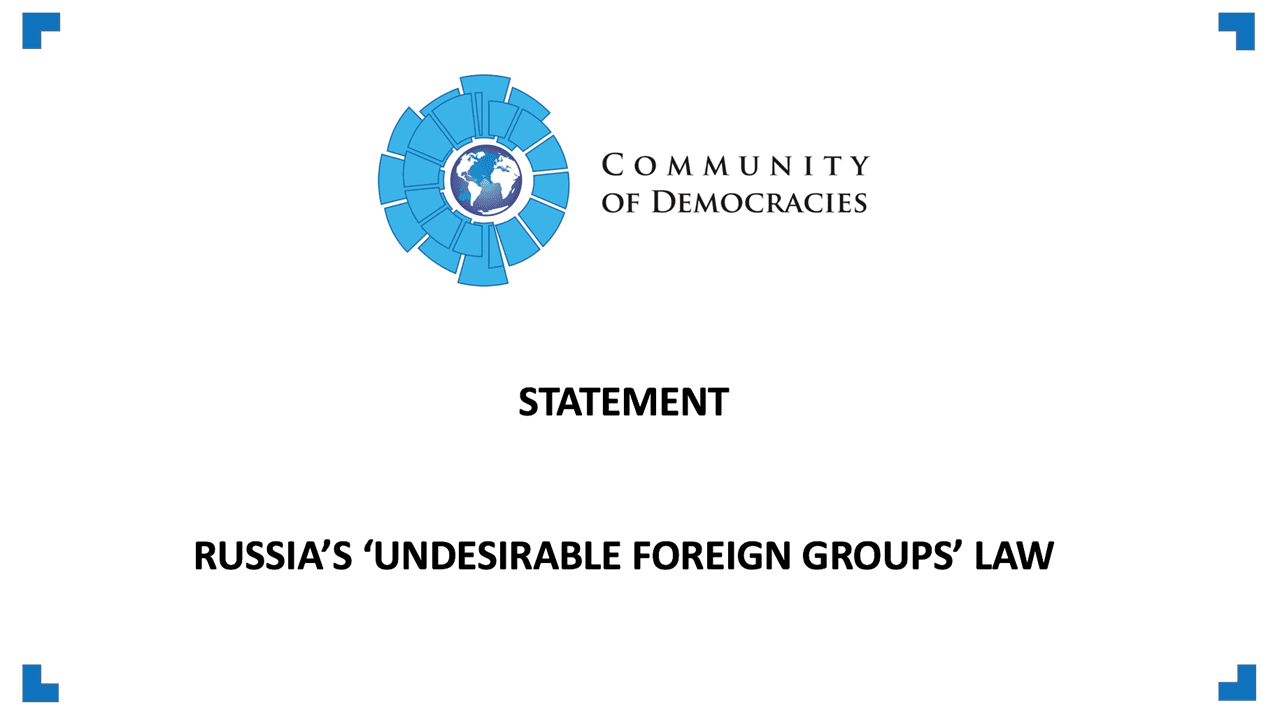Statement on Russia’s ‘Undesirable Foreign Groups’ Law


PRESS RELEASE
Statement on Russian ‘undesirable foreign groups’ law
On Saturday May 23, 2015, Russia’s President Vladimir Putin signed a bill giving prosecutors the power to declare foreign and international organizations ‘undesirable’, further limiting the ability for non-governmental, civil society and non-for-profit groups to operate in the country.
The new law was passed without a clear legal definition on precisely what is an “undesirable” foreign or international group, thus allowing for a variety of interpretations and biases. It also authorizes the government to cease all funds being transferred to the ‘undesirable’ – ultimately, halting its operations.
Human rights activists from Russia and other parts of the world are concerned that the new law will be used to shortlist the number of partners they are cooperating with in the area. Over the past several years, the civic space in Russia has been under threat through the passing of laws, which have isolated its citizens from development and declared civil society organizations as enemies to the government. Only two years ago, Russia had passed an anti-gay “propaganda” law that has since served as a tool for discrimination, violating fundamental international rights on the Freedom of Expression and Opinion.
The Community of Democracies is well versed on the trending shrinking civic space and enhancing restrictions for non-violent civil society organizations. In cooperation with the United Nations Special Rapporteur on the Rights to Freedom of Assembly and of Association, Maina Kiai, the Community of Democracies has launched a project entitled “Protecting Civic Space and the Right to Access Resources” – which addresses these issues directly. It aims to enhance the space for civil society by organizing a set of regional dialogues between civil society, government and the private sector.
Considering our extensive efforts on raising awareness of the challenges of limited civic space, we are deeply troubled by the new law and the silence it intends to evoke upon those who are encouraging fundamental human rights, liberties and securities for all.



